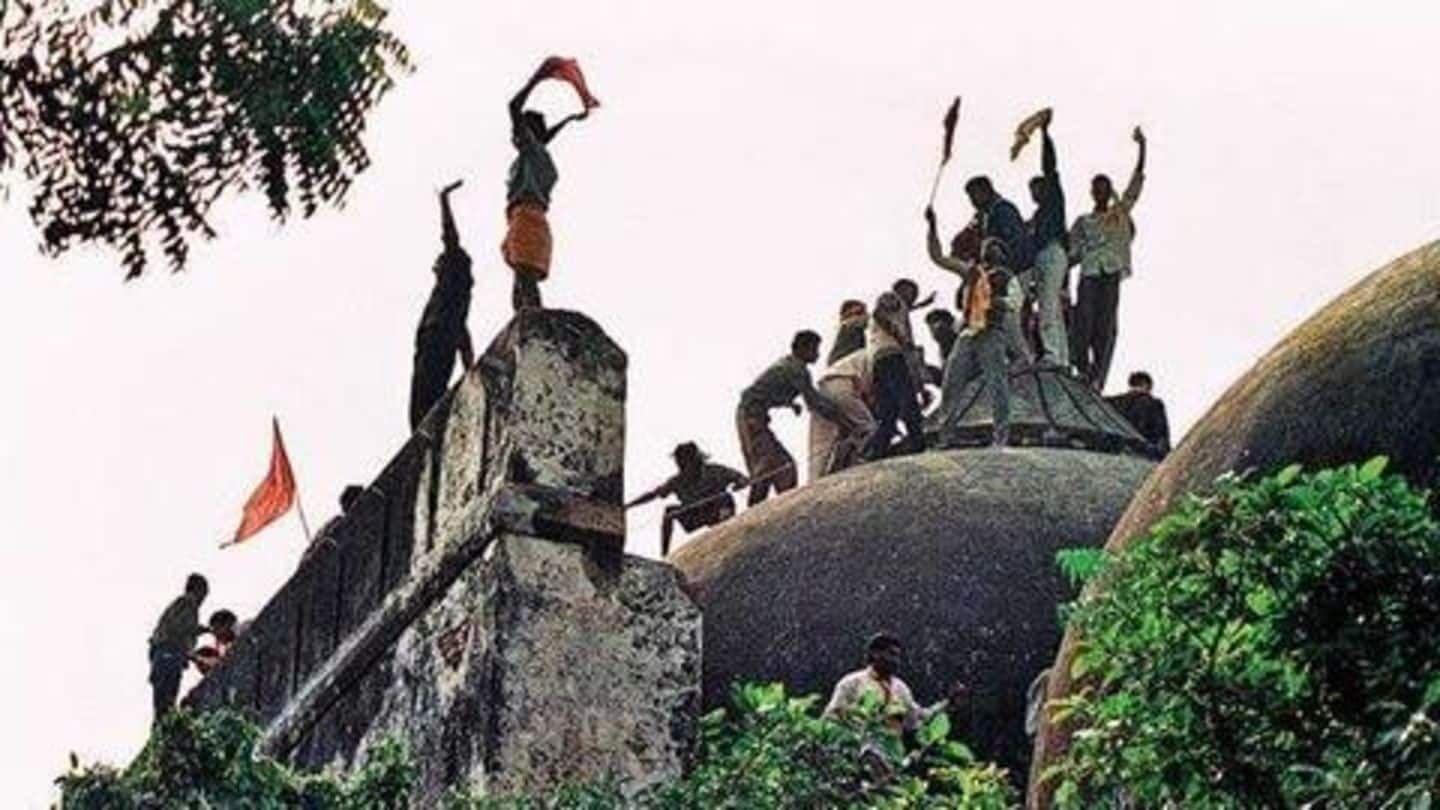
Will Ayodhya verdict be delivered in November? Chances are high
What's the story
The decades-old Ayodhya case, which has been languishing in Supreme Court for years, could finally reach conclusion in November 2019. By hearing the sensitive case on a daily basis, the top court managed to pull off the impossible-- all Hindu parties have completed their arguments. Only the Muslim litigant has to put forward their side, and once that happens, the verdict should be out.
Context
A brief recap of the most controversial case of India
The dispute concerns 2.77 acres of land in Ayodhya, Uttar Pradesh, where a 16th-century Babri Masjid stood. The mosque was razed by Hindu activists in 1992, as they believed the structure was built on ruins of a temple where Lord Rama took human form. In 2010, the Allahabad High Court divided the land equally among Nirmohi Akhada, deity Ram Lalla, and Sunni Waqf Board.
Mediation
Earlier, high-profile mediation panel failed to reach a solution
None of the parties were satisfied with the verdict and knocked on SC's doors. As many as 14 pleas were filed in SC related to the case. Earlier this year, with an intent of giving "healing a chance", SC referred the case for mediation. But the panel, headed by former SC judge FMI Kalifulla, failed to bring warring parties on one page.
Hearing
A constitutional bench is hearing the case on daily basis
With the mediation proceedings ending last month, a constitutional bench of SC, headed by Chief Justice of India Ranjan Gogoi and including Justices SA Bobde, DY Chandrachud, SA Nazeer, and Ashok Bhushan, started daily hearings on August 6. The five-day a week hearing was opposed by Rajeev Dhavan, representing Sunni Waqf Board, but they continued anyway. And now Hindu parties have concluded their arguments.
Parties
Which all Hindu parties are participating in dispute?
Apart from Ram Lalla and Nirmohi Akhada, All India Ram Janmasthan Punaruthan Samiti, two factions of Hindu Mahasabha, and legal heir of Gopal Singh Visharad, the original petitioner, are participating. The court has also heard the argument of Shia Waqf Board, the other Muslim party in the case. Earlier, the Shia Waqf Board had offered to give its share of land to Hindus.
Do you know?
For Shias to give up land, they first need ownership
In SC, Shia's advocate MC Dhingra said when an idol was placed inside the mosque in 1949 it was run by a Shia Mutwali. However, their offer doesn't carry much weight as the Shia Board is locked in a legal dispute with Sunni Waqf Board over ownership.
Arguments
Lawyer of Hindu party drew his arguments from Islamic scriptures
Interestingly, arguing for a Hindu party advocate PN Mishra looked towards Islamic laws to assert that Babri Masjid was "hardly a mosque". Saying the disputed structure was built on a land which neither belonged to Mughal ruler Babur nor Mir Baqi, he added, "The land was never voluntarily given for waqf purpose by its owner in Ayodhya." Further, namaz was also not offered twice daily, he claimed.
Deadline
Muslim side's advocate thinks he can finish arguments in 20-days
With the large chunk of arguments being over (since the bench made it clear that none of the Hindu parties will repeat arguments), all eyes are now set on Dhavan. When asked how long would he take to wrap up his side, he replied twenty days. If he follows the deadline, the arguments should be finished by September end.
Personal
Will outgoing CJI Gogoi sign the crucial order?
This leaves SC with more than a month to deliver its verdict. Notably, CJI Gogoi will retire on November 17, and if the matter doesn't end by then, it will get delayed yet again as a new bench will have to be constituted.